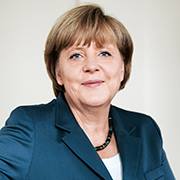Canada News
No special help for Canadian firms caught in Russia sanctions crossfire: Moore
OTTAWA – Industry Minister James Moore says he can offer sympathy but little help to Canadian firms affected by sanctions against Russia, adding they should have seen the situation coming.
The minister made the comments during a teleconference Thursday following his trade mission to the Netherlands as Prime Minister Stephen Harper and German Chancellor Angela Merkel were turning up the heat on Russia over its annexation of Crimea.
While Canada-Russia trade is relatively small, the economic relationship has been expanding rapidly and the former communist country was listed as a “priority market” in Ottawa’s global commerce strategy paper issued in November. As well, dozens of Canadian firms do business with Russia and could potentially be caught in the crossfire of rising political tensions.
Asked if he would intervene on behalf of Canadian firms, Moore said businesses should not be surprised by the West’s imposition of sanctions, which Merkel warned would escalate if Putin does not act to ease tensions.
“We want Canadian businesses to explore export opportunities … but Canada’s foreign policy has to be principle based and will not be held hostage to short-term business interests,” said Moore.
“While we are sympathetic, I think it’s a bit naive for firms not to have had their eyes wide open about the possibility of these kinds of measures,” he added.
Businesses with ties to Russia have expressed concern they could be adversely impacted and many have asked the government for a balanced approach on all sides.
“We are asking that the Canadian government, the Russian government and western governments keep things as calm as possible, but we recognize politics will be politics,” said Erin Chutter, a spokeswoman for the Canada Eurasia Russia Business Association (CERBA), and chief executive of Global Cobalt Corp., which has an ongoing mining project in southern Russia.
Chutter said so far most members are carrying on business as usual and hoping the situation does not escalate.
“The sanctions enacted to date have been surgical in nature, very targeted, specific to individuals,” she said. “Our relationships in Russia have told us the Russian government wants to continue to work with Canadian and western businesses and that our assets won’t be subject to sanctions, but it’s a challenging situation.”
One company that has seen a change of mood is Bombardier Inc., which in August signed a letter of intent to sell a Russian state-owned enterprise up to 100 Q400 turboprop planes for about $3.4 billion.
Bombardier media relations manager Marianella de la Barrera said in an interview that “discussions have softened somewhat around how quickly things are going to happen.”
She added that she remains hopeful there won’t be a delay past 2014.
Besides individual firms, Canada’s pork industry also has a big stake in Russia.
Pork exports to Russia had been growing steadily over the past few years, peaking at $492 million in 2012. After a lull in 2013 due to the imposition of new import requirements by Russia, exports have picked up again to the point that Russia is again the third-largest market for Canadian producers, said Jacques Pomerleau of the Canada Pork International group.
Pomerleau said the industry hasn’t been harmed yet, but could be affected if broad financial sanctions were applied.
“If there are financial sanctions it will have an impact on us, it will have an impact on everybody. It could make it difficult to collect payments,” he said.
Pomerleau, like most other Canadian exporters or investors into Russia, said he is not as “yet” worried about Russia imposing retaliatory sanctions. “The situation is day to day at this point,” he added.
According to the federal trade department, Canadian investment in Russia totalled $4.8 billion in 2012, up from just half a billion dollars in 2007.
Canada also enjoys a trade surplus, with exports to Russia totalling .
7 billion in 2012 compared with imports of just under $1 billion.






















